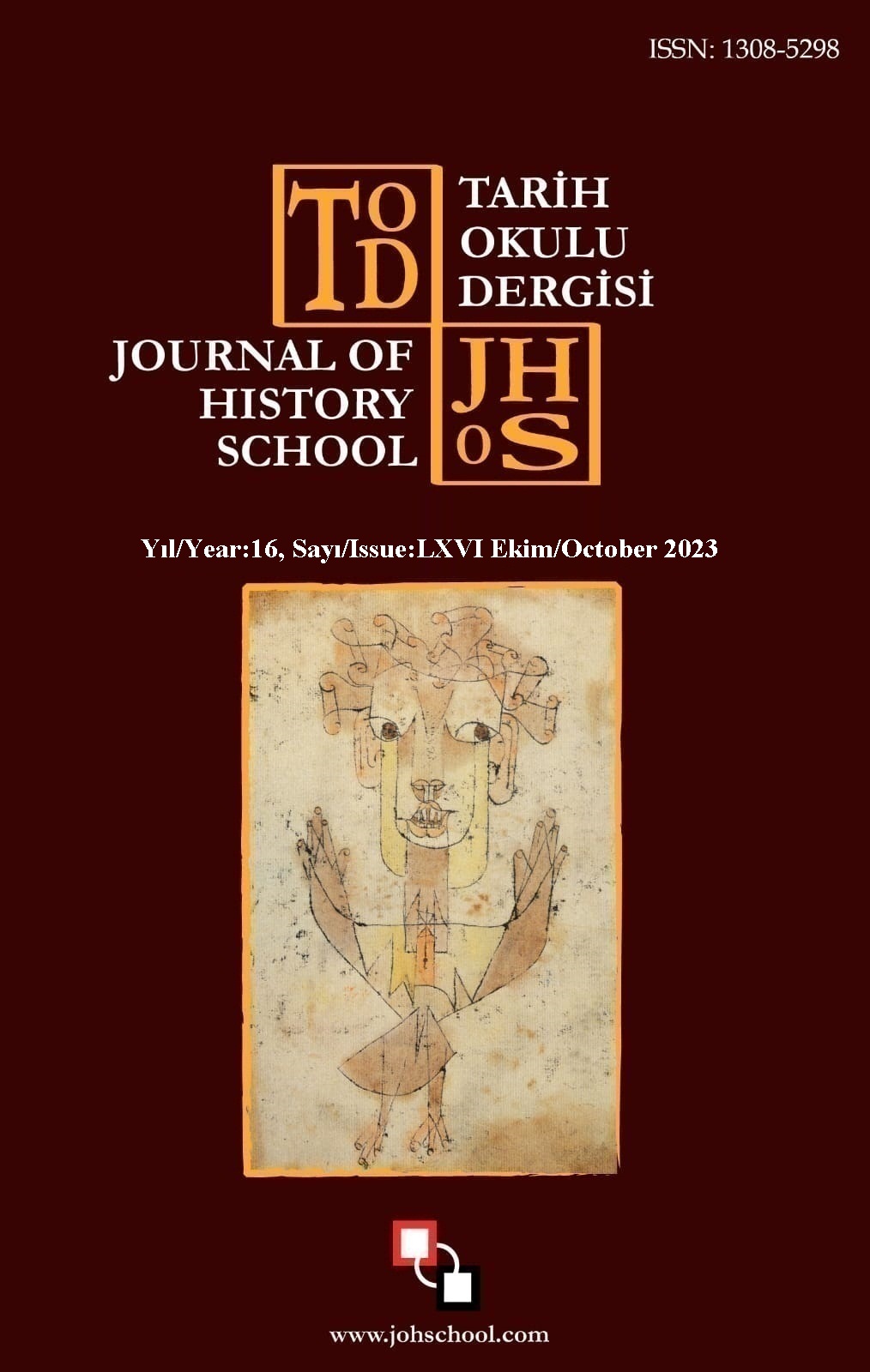Author :
Abstract
İnsanlık tarihi, binyıllar boyunca çeşitli sebeplere dayanan birçok güç mücadelesi ve çatışmaya sahne olmuştur Her ne kadar tarih boyunca dünyanın hemen her köşesinde türlü kaynağın bölüşümüne dayalı küçük ya da büyük çaplı savaşlar yaşanmış olsa da bazı bölgeler, çağlar boyunca güç mücadelesinin süreklilik gösterdiği ve çatışmaların yoğunluğunun yüksek olduğu yerler olagelmişlerdir. Doğu Akdeniz de Asya, Avrupa ve Afrika’nın kesişim noktasında yer alması sebebiyle, tarih boyu yoğun güç mücadelelerinin yaşandığı önemli bölgelerden biridir. Günümüzde bölgede yeni mücadele, dünyada artan nüfus ve artan sanayileşme düzeyine de bağlı olarak yükselen enerji ihtiyacının körüklediği, enerji kaynaklarına ulaşma ve bunlardan güven altında yararlanabilme etrafında odaklanmaktadır. Bu sebeple Doğu Akdeniz’de enerji güvenliği hem pratik politik bir mesele olarak güncel hem de alanda var olan Güvenlik kuramlarını tartışmaya açmak ve sınamak için uygun bir örnektir. Doğu Akdeniz’de enerji meselesi etrafında yoğunlaşan güç mücadelesinin günümüzdeki bağlamı hem politik hem de iktisadi açıların çeşitli sosyolojik ve kültürel hassasiyetlerle de bütünleştiği karmaşık bir yapıya sahiptir. Bu nedenle de özellikle son 10 yılda siyasi vr akademik çevrelerce yoğun olarak tartışılan güncel meselelerden biri halini almıştır. Bu çalışma, siyasal teori, uluslararası siyaset ve güvenlik çalışmaları alanlarının bir kesişiminden oluşan çok boyutlu bir bağlamda hazırlanmıştır. Bu bakımdan da çok boyutlu bir tartışma zemininde akademik katkı sunma potansiyeli bulunan bir çalışmadır. Çalışmada yöntem olarak, nitel araştırma yöntemlerinden, literatür taraması ve eleştirel söylem analizi kullanılmıştır. Çalışmanın üç ana hedefi bulunmaktadır: Güvenlik çalışmalarındaki ana teorik bakış açılarını veya paradigmaları anlamak; alandaki en önemli konular ve tartışmalardan bazılarını son katkılara vurgu yaparak incelemek; akademik literatürdeki teorileri ve argümanları çağdaş politika sorunlarına uygulamak ve hangi çerçevenin ağırlıklı olarak tercih edilmekte olduğunu ve nedenlerini ortaya koymak.
Keywords
Abstract
The history of mankind has witnessed many power struggles and conflicts over the millennia for various reasons. Although there have been small and large-scale wars over the allocation of valuable things in almost every corner of the world throughout history, there are some regions where power struggles have been constant and the intensity of conflicts has been high throughout the ages. The Eastern Mediterranean is one of the most important regions where intense power struggles have taken place throughout history due to its location at the crossroads of Asia, Europe, and Africa. Today, the new struggle in the region is centered around access to and secure exploitation of energy resources, fueled by the rising need for energy due to the world's growing population and increasing level of industrialization. For this reason, energy security in the Eastern Mediterranean is both topical as a practical political issue and an appropriate example to discuss and test the existing Security theories in the field. The current context of the power struggle centered around the energy issue in the Eastern Mediterranean has a complex structure in which both political and economic aspects are integrated with various sociological and cultural sensitivities. For this reason, it has become one of the most intensely debated contemporary issues in both political and academic circles, especially in the last decade. This study has been prepared in a multidimensional context consisting of an intersection of political theory, international politics, and security studies. In this respect, it has the potential to make an academic contribution to a multidimensional debate. The methodology of the study is based on literature review and critical discourse analysis, which are qualitative research methods. The study has three main objectives: To understand the main theoretical perspectives or paradigms in security studies; to examine some of the most important issues and debates in the field with an emphasis on recent contributions; to apply the theories and arguments from the academic literature to contemporary policy issues and to identify which framework is predominantly preferred and why.





